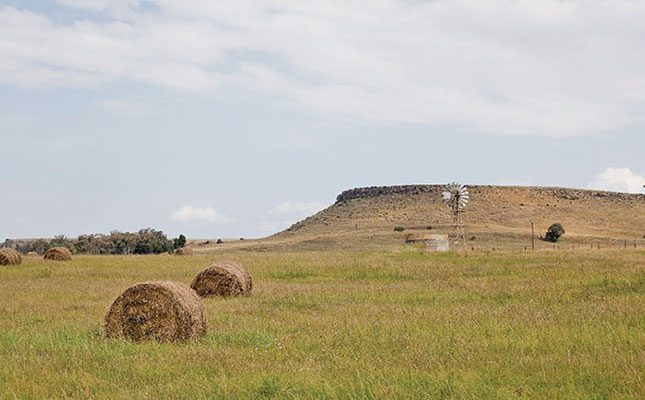
The approval of the bill has reignited fears over “expropriation without compensation” and how this would affect property rights and in effect the economy.
Crosby, however, clarified that “nil compensation” was not the same as “expropriation without any compensation”, as expropriations had to adhere to Section 25 of the Constitution.
This requires expropriation to be “just and equitable, reflecting an equitable balance between the public interest and the interests of those affected” and take all relevant factors into account, among others the market value of the land as well as the purpose of the expropriation.
She said there would be ample time from when government notified affected parties – from landowners to farm labourers, people who lived on the farm and people who might rent land from the owner, and mortgagees – up until the actual expropriation took place, to contest and negotiate a fair compensation.
Landowners would also be able to contest the compensation in court and would likely, win if the compensation was not just and equitable.
“The compensation offered by the state will have to be justified, which means that amounts subtracted to arrive at a possible nil compensation will have to be quantified and justified,” Crosby explained.
She said the bill presented improvements on the previous version, with lots of checks and balances to protect the rights of people who might be affected by expropriation. It also clarified that land could only be expropriated at nil compensation if it had been abandoned by an owner through failure to exercise control over it despite being able to exercise control over it.
The nil compensation provision would therefore not apply if an owner lost control through circumstances where they could no longer exercise control, such as a large-scale land invasion.
One of the biggest concerns for her was the definition of expropriation: “Expropriation should ideally not be defined to allow courts to evaluate expropriation cases on a case-by-case basis considering all relevant factors. The focus should not be on state acquisition, but rather on the loss suffered by the expropriated party,” she said.
This concern has partially been addressed through the inclusion of a new clause that provides for the compulsory acquisition of property directly or indirectly by a third-party beneficiary through an expropriating authority in public interest.
Unfortunately, no provision is made for instances where land loses its value because of constructive expropriation, whereby government uses its regulatory powers to limit the use of the land and thereby decrease its value.
Another major concern for her was the implementation of the bill. “The bill can be implemented in line with the Constitution or in a manner that does not lead to a result that is just and equitable and thus out of step with the requirements of the Constitution. The big test would therefore be in the implementation of the bill,” Crosby said.
In the meantime, various organisations have contested the approval of the bill. The Ad Hoc Group for the Protection of Land Rights said that the ANC government’s “short-sighted persistence and preoccupation to steamroller legislation that allows, by implication, for assets to be expropriated without compensation, would undoubtedly result in the ever-increasing destruction of the mechanisms needed to create wealth, grow the economy and create a better future for South Africa’s residents”.
Various political parties have also requested Ramaphosa to send the bill back to Parliament for reconsideration or to test it against the Constitutional Court.
The DA said the ANC had “snuck a provision into the bill” to allow for expropriation with nil compensation despite this being a violation of section 25 of the Constitution, which provides that property can only be expropriated “subject to compensation”.
The Freedom Front Plus said that expropriation without compensation was unconstitutional, would utterly destroy whatever is left of South Africa after 30 years of ANC rule, and result in an unprecedented exodus of investors from the country as it would negatively impact trade banks, financial institutions and private owners.











